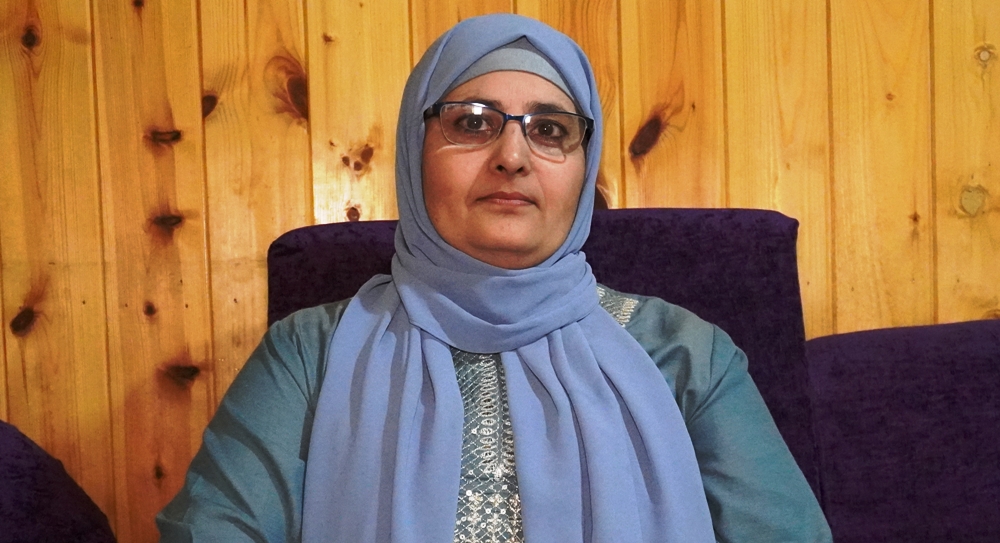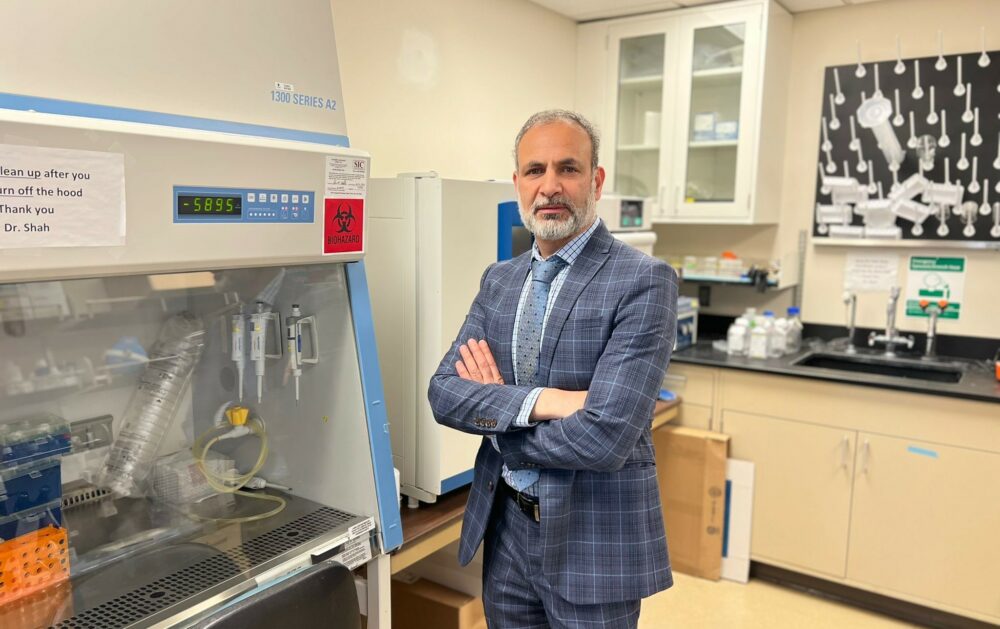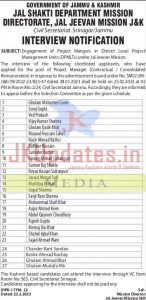[ad_1]
After spending a lot of time trying to locate the particular molecules that play a role in diverse cancers, Dr Zahida Qamri changed her career path and started studying the quick response of societies to impactful science. She is currently working with JK Scientists where they handhold talent and guide the students in academics and research
TheNewsCaravan (KL): How you managed clinical trials during the Covid19 lockdown in the US?
DR ZAHIDA QAMRI (DZQ): In the Covid19 spread, the United States of America (USA) was taken off-guard. The healthcare system was not ready and we witnessed a healthcare crisis. The pandemic put the health systems under immense pressure and stretched them beyond their capacity. The disruption of the supply chain from China greatly affected the functioning of health institutions.
However, the experts successfully carried out vaccination trials in a considerably brief period of time. After clearing the phase-1 and phase-2 trials, the vaccine finally got FDA approval. Critically ill patients were given preference for receiving the vaccine dose. The government of the United States funded laboratories to get the vaccine ready in a minimum time span and the initial focus remained on genome sequencing. Researchers used to work day and night to find a single molecule, against which the vaccine could be produced. A Turkish couple finally succeeded in making the vaccine.
KL: What is your story from Kashmir to Ohio?
DZQ: My elementary education was completed at Netaji Memorial School in Balgarden. My high school years were spent at Caset Experimental School. Following that, I attended Kothibagh Higher Secondary School and then Women’s College on MA Road, where I earned my Bachelor’s degree. I then travelled to Delhi to further my education.
In the 1990s, moving to other states for studies was not an easy option in Kashmir, especially for women. But my family was very supportive towards my studies. Being the youngest among my siblings, I witnessed unparalleled encouragement. With the help of my siblings, I moved to Delhi, applied for the entrance test at Aligarh Muslim University and got into Jamia Hamdard. My initial years in Delhi didn’t go as I expected. It was a cultural shock, and added to it was the monsoon season. I had to stay at our principal RN Koul’s house for a year because I was unable to get hostel lodging. During that time, I had to commute between Faridabad to Delhi. So, it was quite challenging initially. However, with time I coped with the challenges and environment as well. I completed my master’s in Biochemistry. It was followed by a doctoral programme at Jamia Millia Islamia, New Delhi.
KL: What was your PhD thesis all about?
DZQ: In the Indian sub-continent, diarrhoea is one of the major health problems in children under one year of age. The diarrhoea-causing bacteria have various strains, among which few could turn out to be fatal. During my doctoral programme, I examined the stool of the children and developed DNA fingerprinting of the bacteria found. The purpose of my study was to identify and characterize the bacterial strains, which cause diarrhoea in infants. I also studied drug resistance among diarrhoea-causing bacteria.
KL: What were the major takeaways from your study?
DZQ: I discovered a small probe that could be used as identifying probe for bacterial strains and how to treat specific strains.
KL: Not all PhDs end up in discoveries. But there is a chain of follow-up studies. Has your PhD proven to be one?
DZQ: Yes, this topic was worked on under the guidance of my PhD supervisor until he retired. Much work has been done in this area in other parts of the world. In science, each investigation or study is an additional item to solve the puzzle and takes years to complete. Only then, can we get a clear picture of things.
KL: What did you do in your post-doctoral research?
DZQ: During my doctoral programme in microbiology, I developed an interest in oncology. I was selected in Safdarjung Hospital, New Delhi as a research scientist, where we worked on breast cancer. During our research, we hoped to identify a cancer-causing gene in the north Indian population. If we locate that gene in any person during genome sequencing, we can inform them about their propensity for cancer. It was during that time that there was a job opening at the Harvard Medical School for breast cancer. Since I had all the qualifications, I was called there. My first post-Doc was at Harvard Medical School.
Post Doc is basically a training that makes you think and analyse critically. It helps broaden our vision. As, I had studied breast cancer at Safdarjung Hospital, New Delhi, I incorporated brain and lung cancer in the study during my postdoc at Harvard. It was a great opportunity. I started drawing experiments and writing grants independently.
I spent 2.5 years at the Harvard Medical School. Then our lab was shifted to Ohio State University. I worked for 10-12 years as a postdoc there. However, due to a lack of funding, I was unable to get grants. So, I decided to get a master’s degree in Clinical and pre-clinical research from Ohio State University. The programme helped me to get into a new field of managing clinical research and locating the impact of the work in laboratories on common people.

KL: What is the status of cancer research? How long will cancer be a challenge to humanity?
DZQ: In this part of the world, cancer is seen as taboo. People suffering from cancer can’t reveal their condition to others because it is treated as an infectious disease. However, in western countries, a person mandatorily undergoes an annual check-up for cancer. So, if we are able to detect cancer at its early stage, we are able to cure the person. But the lack of pre-screening practice makes a large chunk of our population vulnerable to this deadly disease because the patient only comes to know about it when cancer overtakes his body. It is one of the reasons for the high mortality rates here. There is a need for awareness among the general population and to encourage them to go for annual check-ups. This can help us deal with the disease a little better.
KL: How relevant is the subject of clinical trials here? What are the new subfields of biochemistry that have better demand in the market?
DZQ: Clinical trials are a new and emerging discipline. For better management, Western countries are outsourcing the field. To enter the field, you do not require a specialist degree. Clinical trials are managed in a variety of cities in India, including Bangalore and Hyderabad. I am working with JK Scientists and we have conducted a few programmes on clinical studies and how our youngsters can look towards this area as their career. You may even participate from home. Internet access and electricity are two fundamental requirements in this field.
KL: A number of top professionals are serving major medical institutions across the world. Can there be some kind of outreach centre back home?
DZQ: Yes, of course, that is possible, but it requires infrastructure. The government must take the lead and provide the necessary infrastructure.
KL: Did you see any changes in Kashmir’s education system from the days when you were a student?
DZQ: Our youth are still confused about their education and employment. They do not have a long-term goal. I find it similar to what I witnessed 15-20 years ago. Our youth require suitable guidance on maintaining their attention on the good things.
… Humaira Nabi processed the interview
[ad_2]
#Failure #Detecting #Early #Reason #High #Mortality #Rates #Cancer
( With inputs from : kashmirlife.net )





